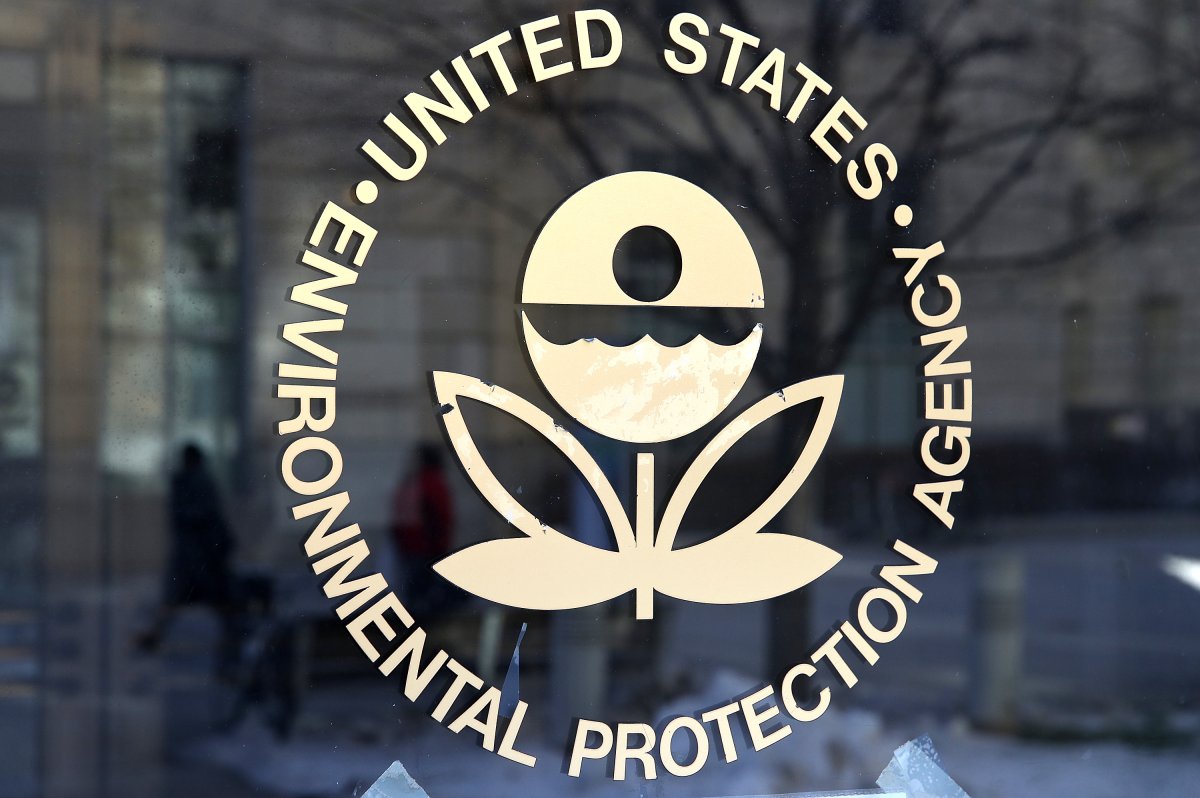A Washington Circuit Court Judge issued a preliminary injunction late Tuesday that allowed climate finance groups to temporarily regain access to bank accounts that the Trump administration had frozen.
U.S. District Court Judge Tanya Chutkan told the Environmental Protection Agency that it cannot carry through its termination of awards under the Greenhouse Gas Reduction Fund (GGRF) or suspend payment to the groups that received grants through the $20 billion program.
Judge Chutkan also ordered Citibank, the designated financial agent for the grants, to disburse any funds incurred before the accounts were suspended without notice in mid-February.
Chutkan is hearing a challenge brought by the nonprofit groups awarded money last year under the GGRF, part of the 2022 Inflation Reduction Act. The money is intended to help finance clean energy, energy efficiency and pollution reduction projects in low-income communities.

Justin Sullivan/Getty Images
President Donald Trump’s EPA Administrator Lee Zeldin has targeted the program for elimination, calling it a “green slush fund.” Zeldin claimed the EPA had inadequate oversight over spending and alleged without evidence that the programs were subject to fraud and waste.
Zeldin pledged to claw back the funding that was sitting in accounts at Citibank and compared the spending to throwing “gold bars” off a sinking ship. The EPA claimed that President Biden’s administration made last-minute changes to the program to allow more money to climate groups before Trump took office. Attorneys for the climate groups countered that the timeline of events does not support that accusation and awards were made before the November election.
The injunction order allows the grantee groups to stay in business and meet immediate obligations while the case is heard.
“Today’s decision gives us a chance to breathe after the EPA unlawfully—and without due process—terminated our awards and blocked access to funds that were appropriated by Congress and legally obligated,” Climate United CEO Beth Bafford said in a statement Tuesday night. “After a yearlong application process, we were hired to do a job that we’ve done for decades: investing in communities and strengthening markets. We want to get back to work.”
In February, Climate United Fund and other groups awarded money under the GGRF found their accounts were frozen with no explanation from EPA or Citi. Climate United sued EPA and Citi on March 8 and other groups later joined the suit.
As Judge Chutkan was preparing for a hearing on the case, Zeldin announced he was terminating the funding agreements altogether.
In a hearing on April 2, Judge Chutkan expressed frustration that the EPA had not offered any evidence to support Zeldin’s claims of fraud in the program.
“We are weeks in and you’re still unable to proffer me any information with regard to any kind of investigation or malfeasance,” she said to the lawyers representing the agency. “You issued a termination letter that was very thin on reasons the night before a hearing.”
Department of Justice Attorney Marc Sacks, representing the EPA, argued that the case did not belong in Chutkan’s court. Rather, Sacks said, the issue was a breach of contract that should be heard by a federal claims court.
On Tuesday afternoon, the day Chutkan had set as the deadline for a decision on the injunction, Sacks filed a request on EPA’s behalf for an emergency stay on the injunction decision, a move that attorneys for the climate groups called “highly unusual.” Chutkan denied the request for an emergency stay, and on Wednesday morning, EPA appealed Chutkan’s injunction order.
Amy Turner, director of the Cities Climate Law Initiative at the Sabin Center for Climate Change Law, said in a press briefing on the case that the issues at hand are far more than contractual.
“We’re talking about an executive agency disregarding the will of the Congress and causing significant damage throughout the economy by not continuing with the Greenhouse Gas Reduction Fund programs,” Turner said.
Companies, nonprofit groups and community leaders around the country have voiced concerns about the disruption to projects they had planned or already had underway based in part on GGRF financing.
One of the GGRF recipient groups, Opportunity Finance Network, estimated that the EPA’s freeze undermined the planned announcement of $228 million in initial awards to 26 organizations. Opportunity Finance said those projects include housing, distributed energy and transportation infrastructure in 30 states, supporting an estimated 5,000 jobs.
“However, the EPA has arbitrarily sought to cancel obligated funds—awarded through a rigorous, competitive and transparent process—based on inaccurate and politicized claims,” an Opportunity Finance spokesperson said in an email to Newsweek.
Newsweek has reported on some of the other projects affected by the GGRF freeze include solar arrays for homes on the Navajo Nation, energy efficiency improvements for affordable housing in New Mexico and Texas, and a geothermal heating project at a community health clinic in Minneapolis.
Jillian Blanchard, Climate Change and Environmental Justice Program lead for the nonprofit group Lawyers for Good Government, told Newsweek that losing the GGRF funding would lead to losses of jobs and revenue in each of the host communities.
“Industry was starting to form, contractors were hired, all kinds of jobs were being created on the promise of this funding,” Blanchard said.
Additionally, Blanchard said, the elimination of Congressionally approved spending by an executive branch agency would undermine the power of the purse that the constitution grants to the legislative branch:
“That would be devastating to the separation of powers under the Constitution.”


